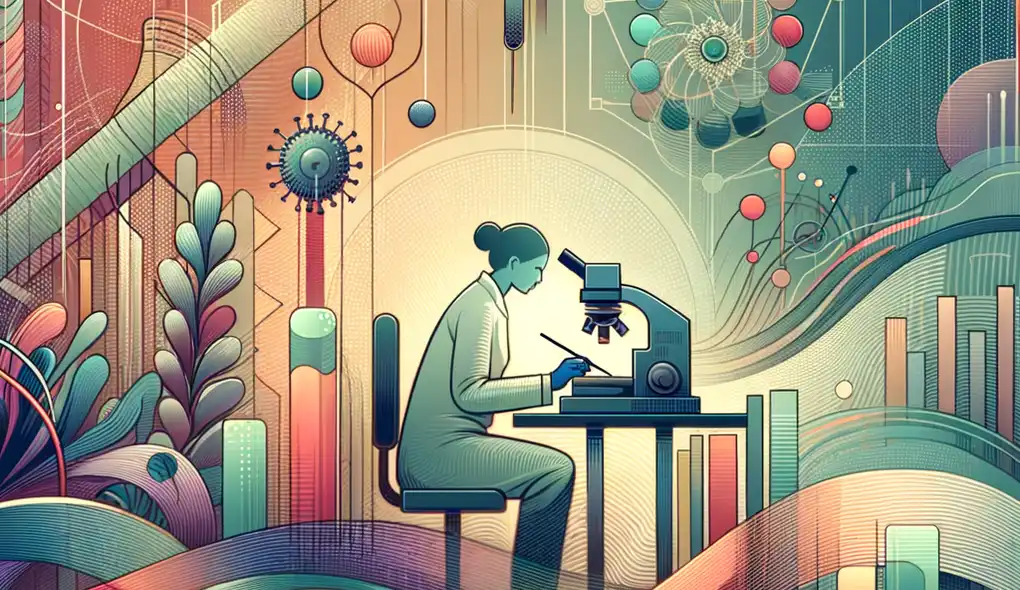Tell us about a time when you faced challenges in ensuring quality control in your data analysis processes.
Microarray Analyst Interview Questions
Sample answer to the question
In my previous role as a Microarray Analyst, I faced challenges in ensuring quality control in my data analysis processes. One specific instance was when I was analyzing microarray data for a research project on cancer biomarkers. The challenge arose when the data was inconsistent due to variations in sample preparation. To address this, I implemented a rigorous quality control process. I conducted a thorough review of the protocols and identified areas where improvements could be made. I collaborated with the lab team to ensure consistent sample handling and data collection. Additionally, I developed automated scripts to perform statistical analysis and identify outliers. These measures significantly improved the quality of the data analysis and helped to ensure accurate results.
A more solid answer
During my time as a Microarray Analyst, I encountered a significant challenge in ensuring quality control in my data analysis processes. In a particular project focused on identifying genetic variants associated with a rare disease, I faced the issue of poor data quality due to variability in the microarray hybridization process. To overcome this challenge, I implemented a comprehensive strategy. Firstly, I thoroughly reviewed the experimental protocols and identified potential sources of error. I collaborated closely with the lab team to standardize the hybridization conditions and optimize the protocols. Additionally, I developed customized scripts in R to detect and remove low-quality data points, and conducted statistical analysis to identify outliers. These steps significantly improved the data quality and ensured accurate analysis. I also documented the entire process to maintain detailed records for future reference and analysis. By effectively addressing this challenge, I was able to deliver reliable and high-quality data analysis results for the project.
Why this is a more solid answer:
The solid answer expands on the basic answer by providing specific details about the candidate's skills and expertise in bioinformatics analysis, microarray technology, statistical analysis, attention to detail, and problem-solving. It describes a specific project where the candidate faced a challenge related to data quality and outlines their comprehensive approach to address it. The answer also highlights their ability to collaborate with the lab team and document the process for future reference. However, it can further improve by including more information about the candidate's communication skills and teamwork, as well as how the project contributed to the research and development efforts.
An exceptional answer
In my role as a Microarray Analyst, I encountered a complex challenge in ensuring quality control in my data analysis processes. During a large-scale genomics study investigating the impact of genetic variants on treatment response in cancer patients, I faced issues related to data integrity and accuracy. The challenge stemmed from the variability in the microarray platform used for data collection, which resulted in inconsistent measurements across samples. To address this, I undertook a multifaceted approach. Firstly, I conducted a comprehensive assessment of the microarray technology, its limitations, and potential sources of variability. I collaborated with experts in the field to optimize the experimental design, including sample preparation and hybridization conditions. I also developed custom algorithms in Python to normalize the data and detect and correct measurement errors. Through extensive statistical analysis, I identified and addressed outliers and other data abnormalities. Furthermore, I implemented rigorous quality control checks at each stage of the analysis pipeline, including data preprocessing, normalization, and downstream analysis. Rigorous documentation and regular communication with the research team facilitated transparency and ensured alignment with project goals. The successful implementation of these measures improved the data quality and reliability, enabling accurate interpretation of genetic variants and their association with treatment outcomes.
Why this is an exceptional answer:
The exceptional answer provides a detailed and comprehensive description of the candidate's experience and expertise in bioinformatics analysis, microarray technology, statistical analysis, attention to detail, and problem-solving. It discusses a challenging genomics study focusing on treatment response in cancer patients and highlights the candidate's ability to address complex issues related to data integrity and accuracy. The answer demonstrates the candidate's deep understanding of the microarray technology and their collaboration with domain experts to optimize the experimental design and data analysis process. It also emphasizes their proficiency in programming (Python) and statistical analysis. The answer further showcases the candidate's commitment to quality control by implementing rigorous checks at every stage of the analysis pipeline, and the importance of communication and documentation. Overall, this answer effectively aligns with the requirements of the job description and highlights the candidate's ability to contribute to research and development efforts.
How to prepare for this question
- Familiarize yourself with various challenges that can arise in data analysis processes, such as poor data quality, variability in experimental conditions, and measurement errors. Research and understand common strategies and techniques to address these challenges in the context of microarray analysis.
- Highlight your experience in bioinformatics analysis, microarray technology, statistical analysis, attention to detail, and problem-solving. Provide specific examples of projects where you have successfully addressed quality control challenges in data analysis processes.
- Demonstrate your ability to collaborate with interdisciplinary teams, communicate effectively, and document your work to ensure transparency and reproducibility.
- Stay updated with the latest advancements in microarray technologies, data analysis methods, and quality control measures. This will reflect your commitment to professional growth and staying current in the field.
What interviewers are evaluating
- Bioinformatics analysis
- Microarray technology expertise
- Statistical analysis proficiency
- Attention to detail
- Problem-solving
Related Interview Questions
More questions for Microarray Analyst interviews